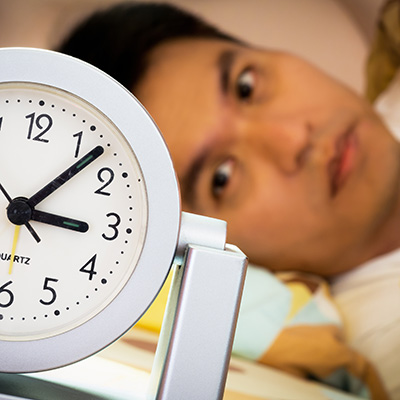Lack of sleep and its link to insulin sensitivity
Insulin sensitivity is a precursor to diabetes. The more time a person spends awake when their body is telling them to sleep, the higher their risk of developing insulin sensitivity, according to a recent study by the University of Colorado. Our biological clock tells us when we should be sleeping. By ignoring this signal, we are putting our  health at risk.
health at risk.
The results of this study proved that the longer a person is awake during the time in which they should be sleeping raises their insulin sensitivity, which leads to type 2-diabetes and pre-diabetes. During the study, participants were allowed to eat during the biological night. The results proved that our bodies are not well prepared to digest food, or become physically active during our biological night.
The study tested two groups of men and women in their 20’s. Each group had eight participants in relatively good health. One group was allowed five hours of sleep a night for five consecutive nights, which immolated a typical workweek. Then, the group transitioned to receiving nine hours of sleep each night for five consecutive nights. The second group underwent the opposite sleep pattern.
The researchers concluded that the first group, in which the participants began by receiving only five hours of sleep a night for five nights, experienced a decrease in oral and intravenous insulin sensitivity by 20 percent. It was not until this first group received three consecutive nights of nine-hour sleep cycles, did their insulin levels return to normal. This study, combined with other studies, proves that sleep has an effect on the production of insulin, and maintaining normal levels of insulin. Although this study only involved young, and otherwise healthy individuals, more research involving participants that are middle-aged or elderly would be ideal.
University of Colorado. (2015). Lack of sleep, body clock disruption leads to impaired insulin sensitivity says CU study. Retrieved from https://www.colorado.edu/news/releases/2015/11/05/lack-sleep-body-clock-disruption-leads-impaired-insulin-sensitivity

